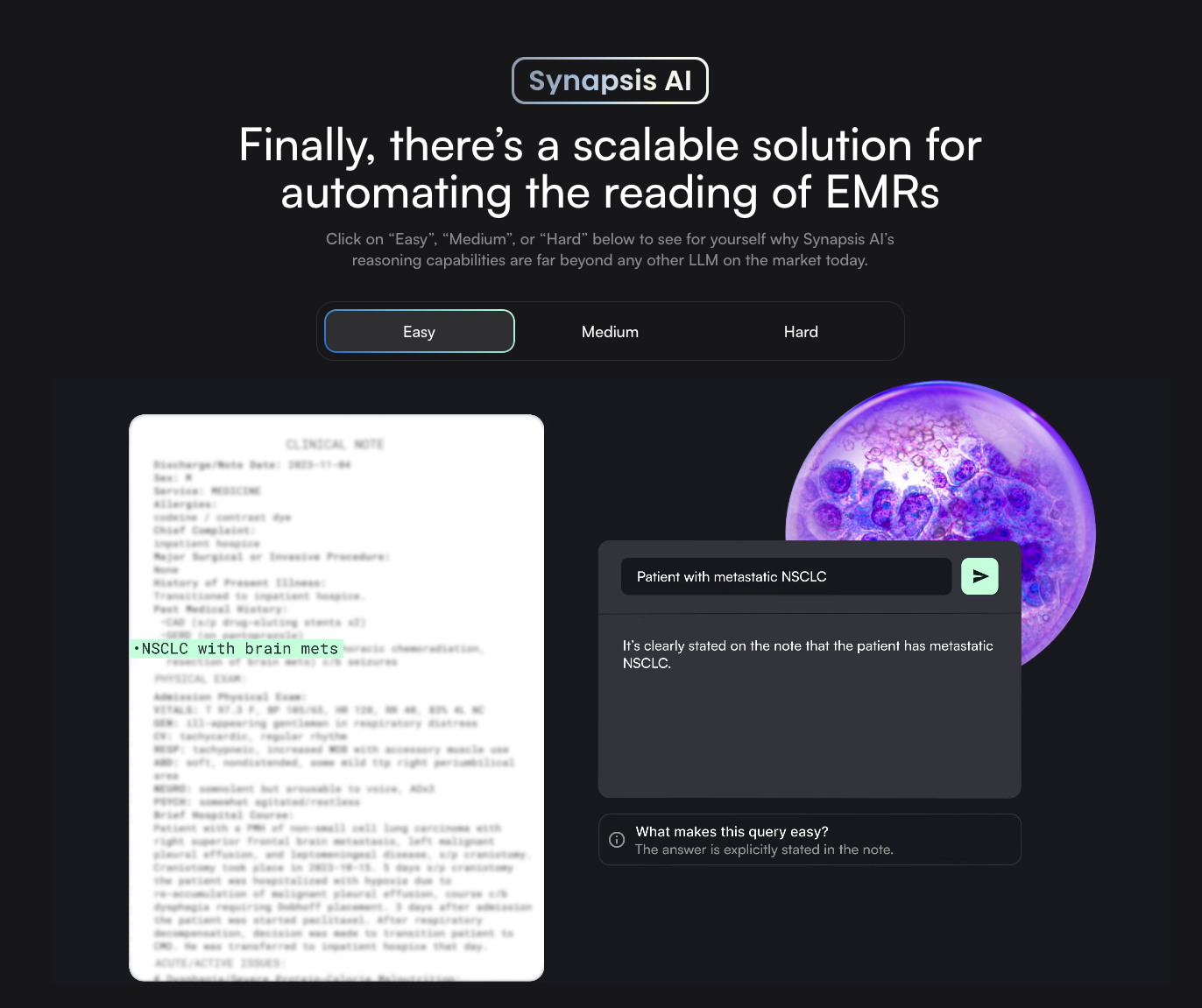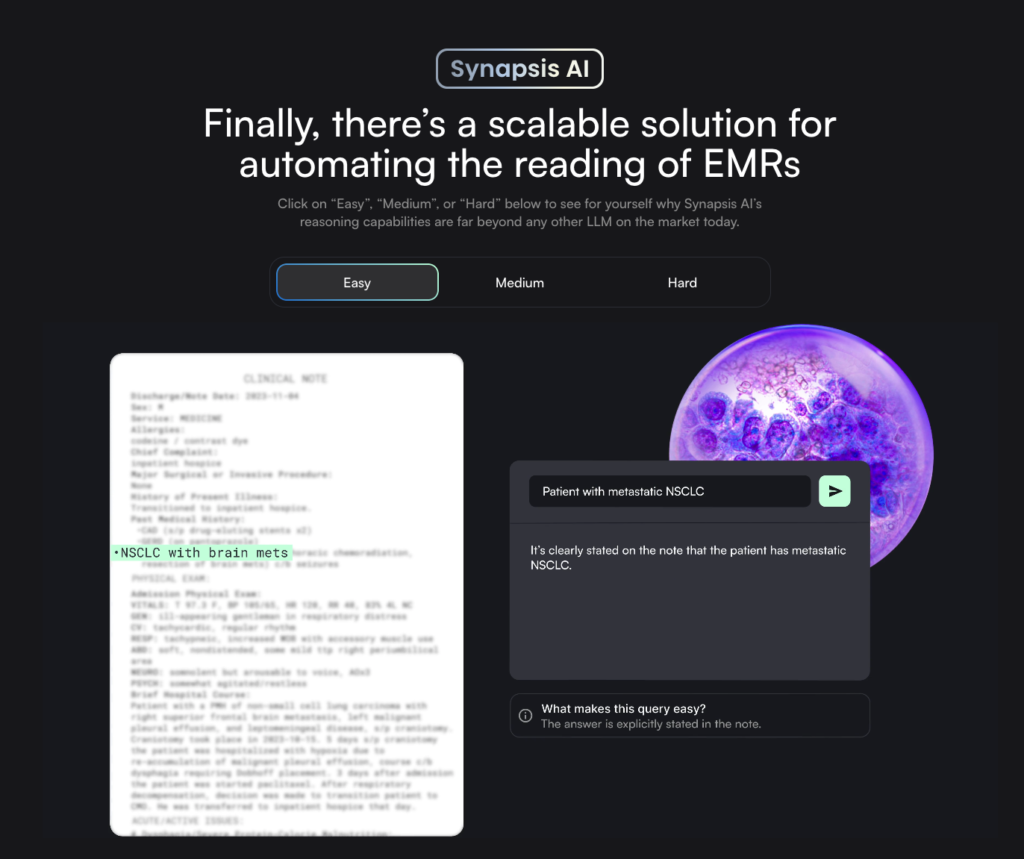
What You Should Know:
– Dyania Health, an AI-powered healthcare data company, today announced the close of its $10 million Series A funding round led by HealthX Ventures with Tech Square Ventures and Cleveland Clinic Ventures, along with significant participation from existing investors.
– Dyania’s Series A is driven by the growing demand for innovative solutions that address inefficiencies in healthcare data management and clinical research, positioning Dyania Health as a leader in AI-powered healthcare technologies.
Dyania Health: Revolutionizing Clinical Data Processing with AI-driven Solutions
Dyania Health is an AI-driven healthcare data company that collaborates with healthcare systems and life sciences organizations to unlock valuable insights from unstructured clinical data. Through its proprietary Synapsis AI platform, Dyania automates the reading, understanding, and analysis of complex medical information, significantly enhancing clinical research, reporting, and quality of care.
Dyania’s platform is currently deployed across large healthcare systems, streamlining enterprise-wide clinical trial pre-screening, automating chart reviews for observational studies, and simplifying complex registry reporting. This automation dramatically reduces manual workloads and increases accuracy and timeliness in patient care decisions.
Founded in 2020, Dyania Health’s mission is to develop AI solutions tailored to medical applications, empowering clinicians by automating one of the most inefficient processes in healthcare—manual chart review. CEO and Founder Eirini Schlosser envisioned a collaborative team of full-time physicians and AI researchers working together to annotate massive data sets. During the COVID-19 pandemic, this team utilized annotated electronic medical records (EMRs) to train their proprietary large language model (LLM), which now powers the Synapsis AI platform.
The Synapsis AI Platform excels by processing large volumes of both unstructured and structured medical data—including physician notes, pathology reports, imaging notes, and numerical lab results—within a healthcare system’s firewall, ensuring compliance with HIPAA and GDPR standards. The platform operates locally, safeguarding patient privacy. Synapsis AI can perform complex medical chart reviews in under a second, drastically reducing the time it takes clinicians to access actionable insights. The platform’s ability to scale with increased computing power opens up new possibilities for rapid and comprehensive clinical decision-making.
Dyania Health’s innovative approach has attracted strategic partnerships with leading healthcare systems and life sciences firms. Notably, Cleveland Clinic has been an early adopter, utilizing Synapsis AI in the areas of cancer and cardiovascular disease. After a year of successful collaboration, Cleveland Clinic is now implementing the platform across its enterprise.
Dyania’s leadership team includes experts from prestigious organizations such as Amazon Alexa AI, Bloomberg AI, Flatiron Health, and NYU Langone. With the successful completion of its Series A funding round, the company aims to expand its team, enhance product capabilities, and scale operations to meet the growing demand from healthcare systems and biopharmaceutical companies.
By acquiring advanced computing resources early on, Dyania Health has consistently pushed the boundaries of AI performance in medical chart review, surpassing human experts and revolutionizing the efficiency and accuracy of clinical workflows.
“Artificial intelligence has the potential to enhance patient care and increase the speed of medical research. Our efforts with Dyania Health combine deep computational and medical expertise,” said Rohit Chandra, PhD, Cleveland Clinic’s Chief Digital Officer. “For instance, through our work together with Dyania and the clinical leadership of Cleveland Clinic’s Heart, Vascular and Thoracic Institute and Cancer Institute, we are seeing early success with the technology in streamlining and accelerating the clinical trial recruitment process. The system’s medically trained large language model can screen electronic medical records to identify patients that meet the eligibility criteria for clinical trials. Removing these bottlenecks will give patients easy access to clinical trials, as well as accelerate scientific progress.”

